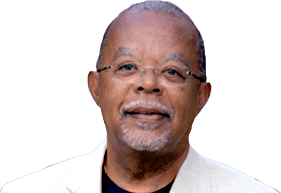Noah Galkin
Dear Henry Louis Gates,
Let’s start from the beginning. Not the very beginning, but the beginning of something that separated us for way too long, and still does. The beginning of a little something called racism. It has been going on since… who knows when. No one in my class knew when it really started; until we saw your documentary.
Your documentary taught me many things, like about slavery and the civil war, and so much about the civil rights movement that I didn’t even know happened. But I’m not here to tell you what I learned, but more how it affected me.
At the beginning of the documentary, (I’m going to be honest here) I thought it was just another one of those tiny school videos they show that doesn’t ever give you all the details, but I was wrong. I was very, very wrong.
Your documentary is the opposite of one hour of wrong information. It is six hours of pure greatness. Someone else might hear that they have to sit through a six hour documentary and give up watching it, but if they knew how wonderful (and terrifyingly sad) it was, I’d say about 100% of those people would watch it.
The documentary not only teaches people about the African Americans and their history, but makes them think about it and research it more (if they haven’t learned all of it already from the documentary).
Yes, the history of the African Americans is dark and gory, but your documentary reveals the darker secrets of the African American past. Lets say that some horribly tear jerking information is a tiny hole in the dirt. You take that tiny hole and dig all the way through the earth.
But when you dug deeper, you found information that was hidden between the lines. Information no one knew. But you taught them it.
As fifth graders, this was all new to us. If a historian watched it, they might have already known a lot of it. But think about a ten year old, who had already learned about the civil rights movement and a little about slavery, and though they knew all of it. But then they watched your documentary and all this new information started flowing through their still growing brain cells.
I mean, barely any of us knew about the harlem renaissance! And no one knew that the African Americans were enslaving themselves in the beginning! All this information so… So… Fresh to the millions that have watched your documentary! I say that everyone who cares about this big part of history- anyone who gives a hoot should see this six part masterpiece!
A lot of documentaries don’t have a story, but I felt yours does. Say, a documentary about… The ocean. They tell you about whales and fish and coral reefs, and then there’s your documentary on the African Americans. You tell the entire story from start to “To Be Continued” (since this fight for freedom sadly isn’t over yet).
You explained everything in the documentary so well that I felt I was there. I felt when the slave hid in that tiny box that I was a tiny mouse nearby, watching. I felt that when Bloody Sunday happened on March 7, 1965 that I was running back with them. I felt that when the police searched the man’s house for drugs and found them, I was one of the police officers (except I didn’t have the racist mind of one).
What I’m trying to say here (if you haven’t figured it out already) is that I really enjoyed your documentary. Not in a racist way, I enjoyed it because it taught me many things and made me feel for the African Americans. I enjoyed it because it was unique.
Sincerely, Noah Galkin




